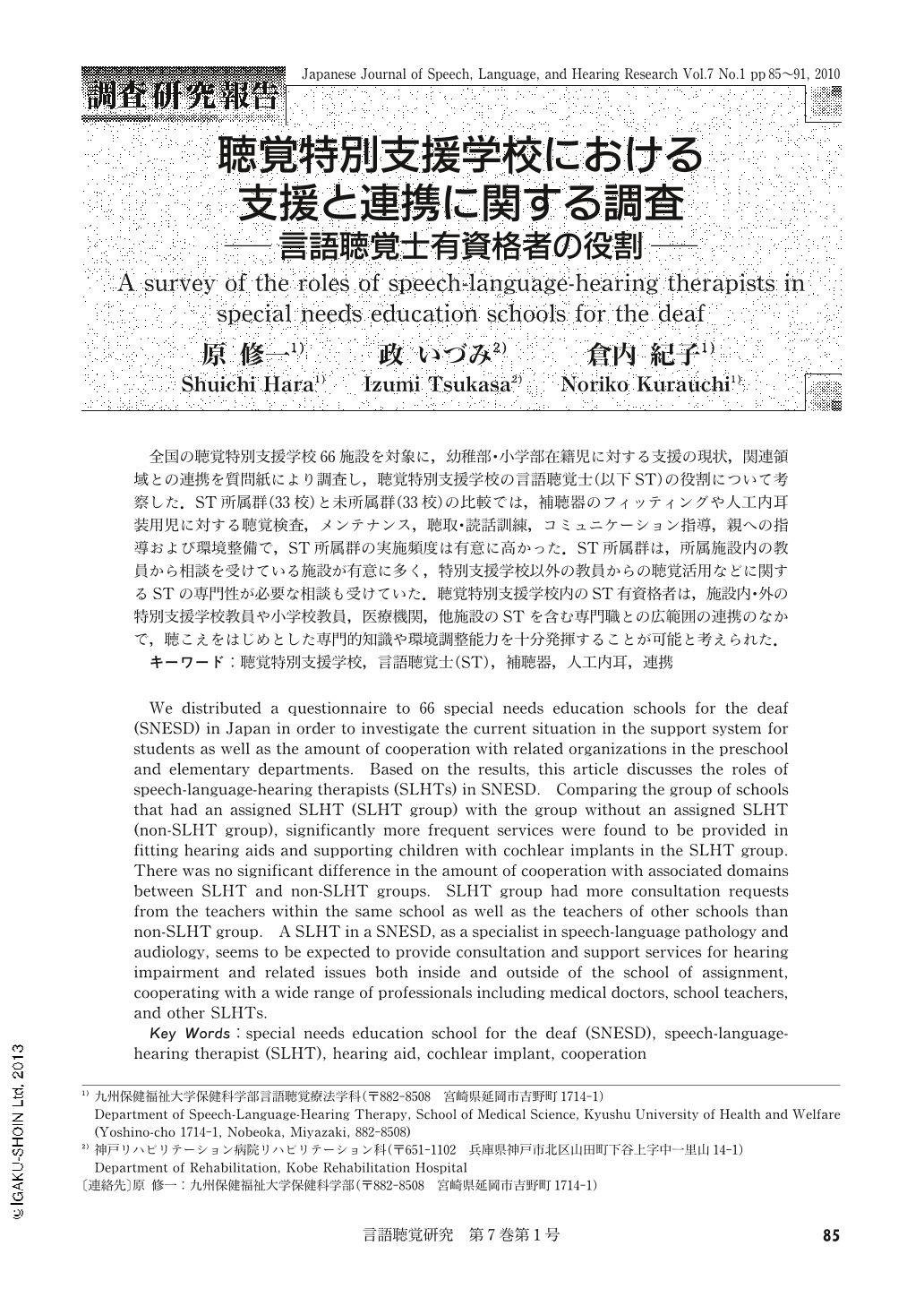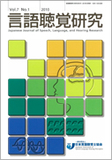Japanese
English
- 有料閲覧
- Abstract 文献概要
- 1ページ目 Look Inside
- 参考文献 Reference
- サイト内被引用 Cited by
全国の聴覚特別支援学校66施設を対象に,幼稚部・小学部在籍児に対する支援の現状,関連領域との連携を質問紙により調査し,聴覚特別支援学校の言語聴覚士(以下ST)の役割について考察した.ST所属群(33校)と未所属群(33校)の比較では,補聴器のフィッティングや人工内耳装用児に対する聴覚検査,メンテナンス,聴取・読話訓練,コミュニケーション指導,親への指導および環境整備で,ST所属群の実施頻度は有意に高かった.ST所属群は,所属施設内の教員から相談を受けている施設が有意に多く,特別支援学校以外の教員からの聴覚活用などに関するSTの専門性が必要な相談も受けていた.聴覚特別支援学校内のST有資格者は,施設内・外の特別支援学校教員や小学校教員,医療機関,他施設のSTを含む専門職との広範囲の連携のなかで,聴こえをはじめとした専門的知識や環境調整能力を十分発揮することが可能と考えられた.
We distributed a questionnaire to 66 special needs education schools for the deaf (SNESD) in Japan in order to investigate the current situation in the support system for students as well as the amount of cooperation with related organizations in the preschool and elementary departments. Based on the results, this article discusses the roles of speech-language-hearing therapists (SLHTs) in SNESD. Comparing the group of schools that had an assigned SLHT (SLHT group) with the group without an assigned SLHT (non-SLHT group), significantly more frequent services were found to be provided in fitting hearing aids and supporting children with cochlear implants in the SLHT group. There was no significant difference in the amount of cooperation with associated domains between SLHT and non-SLHT groups. SLHT group had more consultation requests from the teachers within the same school as well as the teachers of other schools than non-SLHT group. A SLHT in a SNESD, as a specialist in speech-language pathology and audiology, seems to be expected to provide consultation and support services for hearing impairment and related issues both inside and outside of the school of assignment, cooperating with a wide range of professionals including medical doctors, school teachers, and other SLHTs.

Copyright © 2010, Japanese Association of Speech-Language-Hearing Therapists. All rights reserved.


